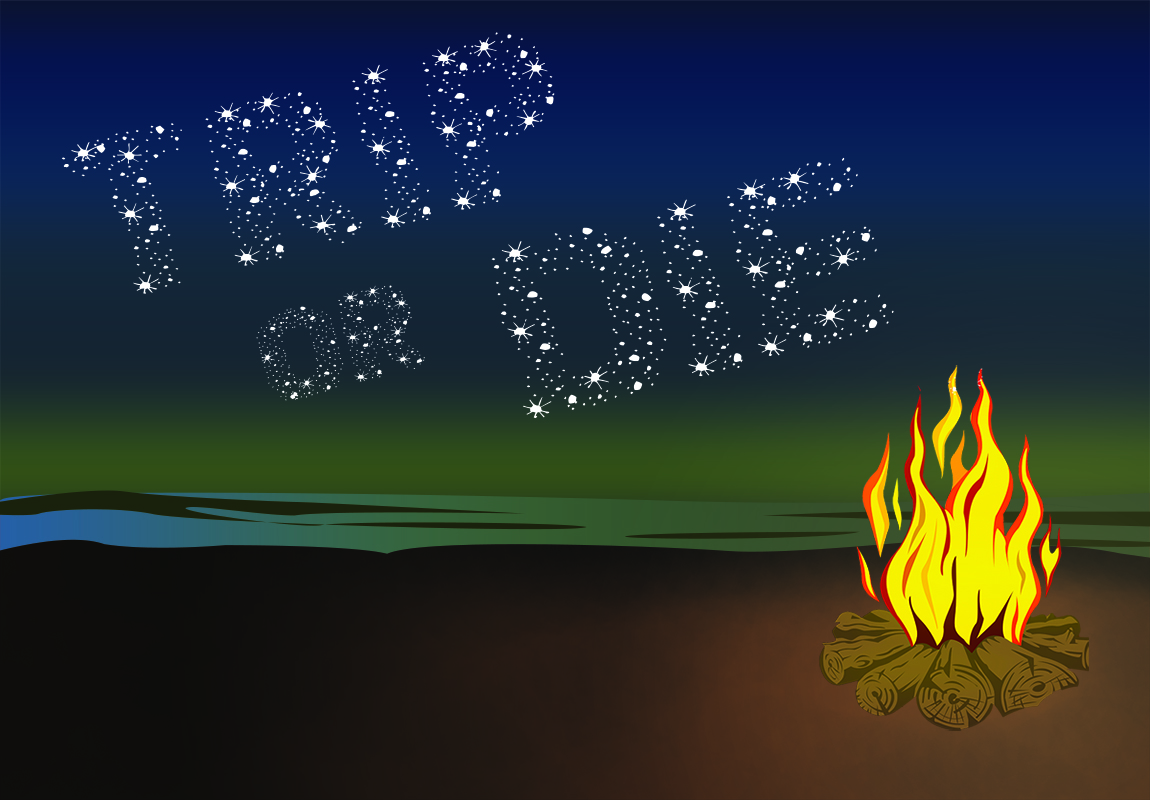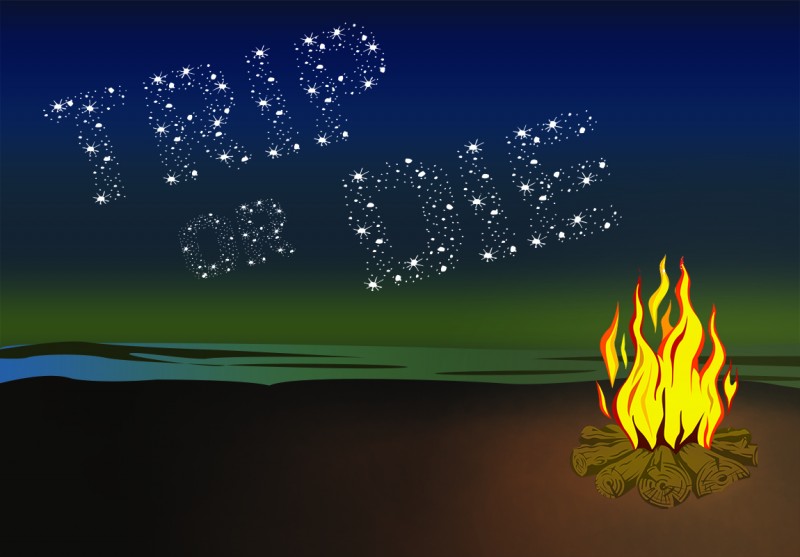Reviving the “trip or die” mentality

Why is this disregard for an old camp saying such a big deal?

Growing up at summer camp, there was a saying: “Trip or die.”
Whenever we built a fire, “Trip or die.” Whenever we finished a portage with a canoe crushing our shoulders, “Trip or die.” Whenever we paddled a lake, ate a good meal, looked up at the stars, took an afternoon nap, we would always say, “Trip or die.”
It was a motto embedded in the culture of our experience — words we lived by whenever we faced obstacles, but managed to push through. It provoked a mentality of empowerment while immersed in the uplifting beauty of nature.
Last summer, with a new director coming into camp and a new world of liabilities pressing in at every corner of society, the saying was suddenly forced under the rug.
After a recent phone call with the current director regarding a discussion of my return this summer to take out some canoe trips, he mentioned that the “trip or die” mentality was considered a “red flag.”
He discussed the mental health of campers and how the words could suggest alternative meanings that could be seen in a more negative light.
Sure, I get it.
We live in a society where another person’s thoughts are our worst nightmare.
“Trip or die” derives from the saying “live or die.” It does not suggest you must actually grab a paddle or die, but rather that tripping is a way of life. One where we can appreciate nature, learn to never give up and stay open-minded in any situation that storms our way. Not a “negative” message to send campers if you ask me.
It’s a saying about making the worst of situations seen to be the best of opportunities, as simple as saying “water is wet,” or “fire is hot.”
They are words intended to spark motivation in campers and make them believe there is nothing they cannot accomplish. It’s a phrase that can turn any rainy day sunny, any fire-cooked stir-fry into a gourmet five-star meal and make a sunset glowing lake the most satisfying sight the eye could see. The words can make a never-ending portage suddenly seem possible, and could turn fear into thundering inspiration.
The “trip or die” mentality transcends the twisting bigotry that tackles our modern world.
In a society where words can change meaning at any second, surrendering our understanding is the first way to lose grasp of our belief.
Giving in to the expectations of every overactive liability prevents our own thoughts from surfacing and derails the expectations of ourselves. In struggles to make everyone happy, we are making nobody happy at all.
Why is this disregard for an old camp saying such a big deal?
Because in times where everything said can be taken so literally, we are threatening the versatility of language — we are conforming to a system that replaces meaning for what we know with what others may assume. Fear of assumption has vacuumed our tongues. And it’s about damn time we resist the suction preventing us from chanting what we believe.
“TRIP OR DIE.”

